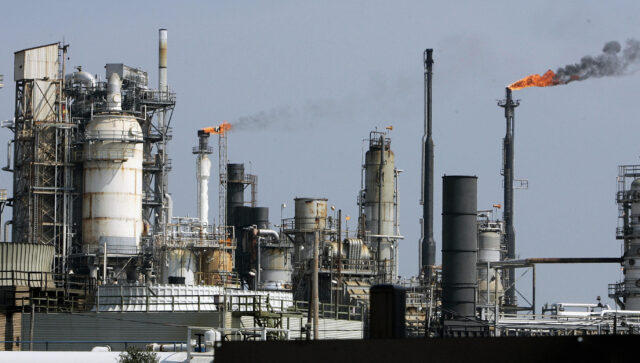
By Uche Amunike
An Independent Petroleum Producers Group (IPPG), has refused to obey the order given by the federal government, that they should sell crude oil to the Dangote Refinery and other local refineries in the country.
They have also called on the Nigerian National Petroleum Company Limited (NNPCL), to re-direct its allocated crude oil volumes to Dangote Refinery and other local refineries to mitigate the crude oil supply shortage being presently experienced by local refiners, which has impacted local product availability in several parts of the country.
Speaking, in a letter dated August 16, 2024, the Chairman of the Independent Petroleum Producers Group, Abdulrazak Isa, addressed the Chief Executive of the Nigerian Upstream Petroleum Regulatory Commission, Gbenga Komolafe, stating that the NNPC should use its allocated 445,000 barrels per day intervention crude oil volume to save the present situation like it has done severally in the past.
According to Isa, some members of the IPPG owned and supplied crude oil to local refineries, but yet insisted that the NNPC could easily mitigate the present crude supply shortfall faced by local refiners by leveraging its statutory crude allocation for meeting local domestic consumption.
He stated: ‘Historically, NNPC has always had an intervention crude oil volume (445kbopd) meant to satisfy the nation’s domestic consumption. This volume has always been used, under various swap mechanisms, to import refined products for domestic consumption.’
‘Since there is now domestic refining capacity to meet consumption, this dedicated volume should be reserved for all domestic refineries under a price hedge mechanism that can be provided by a suitable financial institution such as Afrexim Bank.’
He further stated: ‘Any national production above this allocated volume should be treated strictly as export volumes, adhering to the willing buyer, willing seller framework of the international market especially since the refiners will need to export excess products that surpass domestic demand thus boosting FX earnings.‘
The group also showed concerns over some recent developments like the domestic crude oil refining requirements and crude oil production forecast for the second half of 2024, which was announced by the NUPRC, including the call for all producing companies for their monthly quotations for crude oil supply to licensed refineries in Nigeria.
According to the Independent Petroleum Producers Group, some of its members had received letters from the Dangote Refinery for crude oil supply nominations for October and condemned the approach, as it put them under an obligation and also conflicted with the spirit of the willing-buyer, willing-seller framework which was recommended by the Petroleum Industry Act 2021.
He maintained that the aim of enhancing Nigeria’s petroleum value chain should be carried out with the confines of the law and existing obligations, showing the confidence that a great solution could be reached by every stakeholder without putting the present commercial agreements, economic interests and business models of each segment of the oil and gas sector.
Hear him: ‘While we fully support and commend the efforts of Nigerian entrepreneurs to enhance domestic refining capacity, it is important that no private sector business is unduly pressured into arrangements that may effectively subsidise another within the oil and gas value chain under any guise whatsoever.’
‘Under this willing-buyer, willing-seller framework, it is essential for refiners to negotiate and execute long-term crude oil Sales and Purchase Agreements with producers and their marketing agents. These agreements should follow industry best practices, with typical tenures ranging from one to five years,’ he explained.
He noted that there might be potential implications for the economy, especially the foreign exchange earnings through royalties and taxes as the NUPRC sent allocation letters to some of their members, for the supply of specific volumes of crude oil to the domestic market for the second half of 2024.
Hear him: ‘We understand that the current allocation methodology appears to be based on a matrix of production forecasts by producers, issued technical allowable rates as well as crude oil requirements of domestic refineries, rather than actual local consumption needs. This raises significant concerns as it suggests that allocations are being determined based on the demands of refiners, which may exceed what is needed for domestic consumption.’
He called for transparency in allocations to oil producers.






